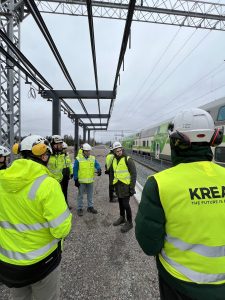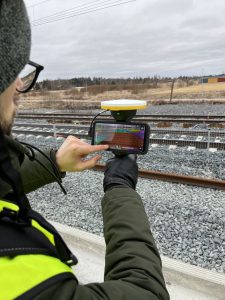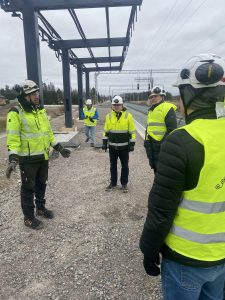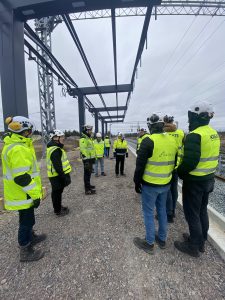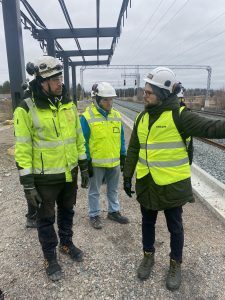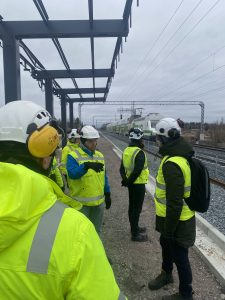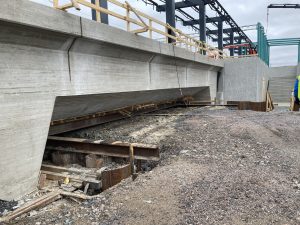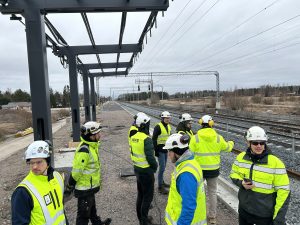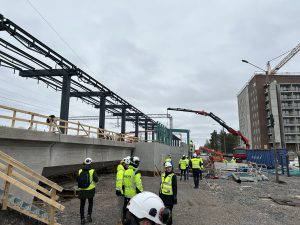Rail Baltica joint venture RB Rail AS and LTG Infra, the company implementing Rail Baltica in Lithuania, recently visited the Finnish Transport Infrastructure Agency (FTIA) to exchange knowledge and address challenges in geotechnical monitoring within railway infrastructure projects. This initiative, undertaken during a field trip to Helsinki, aimed to enhance monitoring practices crucial for project safety and efficiency. The main goal of this collaboration was to improve geotechnical monitoring practices based on shared challenges encountered during project construction. Insights from FTIA, known for its expertise in this field, were particularly valuable.
In early April, delegates traveled to Helsinki (Finland) for a series of informative sessions, presentations, and discussions. The agenda included meetings and presentations on ongoing construction works at the Helsinki-Riihimäki project and a site visit to the Ainola station. Key takeaways emphasized the importance of targeted monitoring strategies tailored to specific risks, outsourcing monitoring implementation to third parties, and considering automated systems for long-term monitoring. FTIA applies automated systems to enable online monitoring and online alerts when sensitive structures or critical environmental impacts are monitored.
“Ground engineering works effect on ground behavior and zone of influence are complex to predict in the design phase. These uncertainties challenge project risk management and inhibit solution optimization. Geotechnical monitoring is an essential tool to measure effects and allows all parties to control the situation and guarantee the safety of train traffic at the end. This is FTIA’s driver to invest in monitoring,” remarks Panu Tolla, Senior geotechnical advisor at FTIA.
“Our collaboration with FTIA has provided valuable insights into improving geotechnical monitoring practices. This partnership demonstrates our commitment to leveraging expertise for the benefit of railway infrastructure projects. Looking ahead, coordinated efforts with implementing bodies, meticulous definition of trigger levels, and potential outsourcing of monitoring implementation are planned. Additionally, developing user-friendly interfaces for monitoring analysis and integrating construction phase monitoring into long-term systems are priorities,” said Julius Vladička, Geotechnical Team Leader at RB Rail.
“The insights gained during our visit will positively impact the successful implementation of the Rail Baltica project, not only during the construction phase but also throughout the operational phase. From the infrastructure manager’s perspective, the quality of construction and the timely identification and resolution of post-construction issues are crucial. Therefore, seeing the effective collaboration between the FTIA, contractors, and designers was invaluable to us. We have learned invaluable lessons in communication and coordination among various stakeholders,” said Evaldas Katkus, Head of Technical Operations at Rail Baltica Management of LTG Infra.
The collaboration with FTIA marks a significant step towards enhancing geotechnical monitoring in railway projects. With a clear roadmap for action, Rail Baltica implementers are orientated for continuous improvement for project safety and efficiency.
